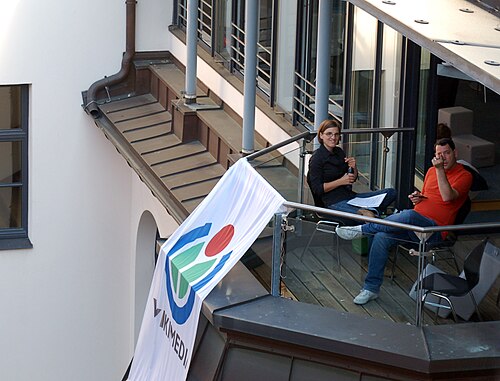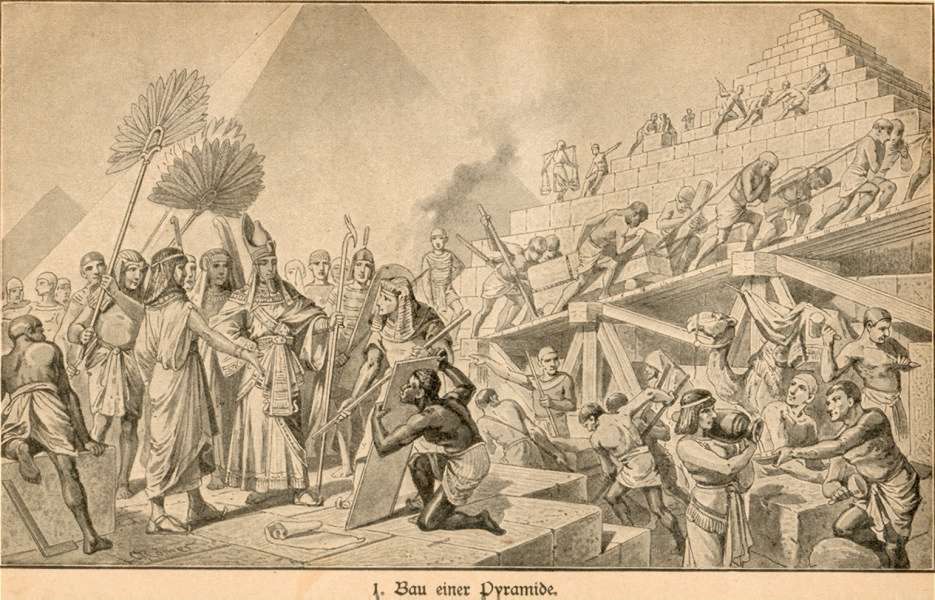Sexualization versus Naturism:
First, I will start with the now-infamous Vulva picture. A picture I don't like too much, because I think it was too aggressive. But which also gets way too much fire, and which I think has suffered under a misunderstanding. According to Sue "the Wikimedia Foundation Board of Trustees began to discuss how the Wikimedia community was handling controversial imagery. Why? [...] because the German community had put up a close-up photo of a vagina on its homepage." Neither I (nor many Wikipedians) think, that this image is overtly sexual. If you ask me, it is so aggressive, that it is actually anti-sexual and de-rousing.
And in this the image has more in common with German Freikörperkultur than with sexualizing content. As anybody can verify who has actually visited some nudist camp, naturism is about the most asexual activity in this world. Wikipedia says about naturism: "It is generally agreed among naturists that erotism and blatant sexuality have no place in naturism and are, in fact, antithetical to its ideals." Or, to cite the same article: Richard Ungewitter (Nacktheit, 1906, Nackt, 1908, etc.) proposed that combining physical fitness, sunlight, and fresh air bathing, and then adding the nudist philosophy, contributed to mental and psychological fitness, good health, and an improved moral-life view.
As far as I know my fellow Wikipedians, the Vulva-picture was chosen to improve the moral-life of its readers. It was chosen to represent the world "as it is". There is a straight-forward moral reasoning behind it: When we write an article about ovis aries, we show a sheep. When we write an article about legs, we show a leg. And when we write an article about vulvas, we show a vulva. The world is full of sheep, legs and vulvas, so we are morally obliged to show them. It is not the picture, that is sexualizing, but the unenlightened moral of the reader. We do have the moral duty to enlighten this person. It is a bit of brute-force-enlightenment, I admit. But it is straight-forward, coherent, and certainly moral-based.
This of course is a world-view especially strong held by Wikipedians. But in case of the Germans is not so far away from their readers. Almost all of the German speakers (and potential readers) live in a handful of Central European countries with a similar history, culture, and ethical standards. Almost all of writers and readers visited state schools with a thorough curriculum in sexual education (which btw. leads to one of the lowest birth rates in the world..). A very few will have gone through a similar curriculum in private school. A handful of Christian parents try to remove their children from school altogether to avoid this sex education - but they can't, there is a law against it. It is a law that is appreciated and praised by the mainstream German society. Every German above the age of 12 will have seen a picture similar to the Vulva one in a textbook in school.

A lamb is a lamb is a lamb.
The Vulva-discussion is pretty much the only community-wide discussion about moral topics I remember. Most other front page discussions run along the lines "too many military articles on the front page?" and "too many catholic bishops on the front pages?", where a small number dedicated users know how to play the rules, and push their topics in a rule-conforming way. In de.wp there is no big difference between writers and readers. The difference becomes even less when considering the basic moral outview on the world.
As already extensively said by Jan Eissfeldt, German Wikipedia moral standards are effortless in line with the moral standards of the German (Austrian, Swiss..) society. They may differ a lot from those standards prevailing in other countries. But a reader from, say India or Pakistan, won't hesitate to use the German Wikipedia out of moral qualms, but because he does not speak the language anyway.
Who am I writing for:
But right now I am only talking about Germany. What about the other readers? Sue writes: In newsrooms, editors don’t vote on whether they personally are offended by material they know their readers will find objectionable... The job is to provide useful information to as many people as possible.. Yeah, but it's not a job, and I am not getting paid. Newspaper editors have some strong incentives to reach as much people as possible. One is obvious, those people pay for them. The other, to assume good faith, is, because the editors want to make a difference in the world.

Is a lamb.
But most Wikipedians are not getting paid. They don't want to make a difference, but to make an encyclopedia. Many authors and Wikipedians are of course happy, when their texts are read, or when knowledge is distributed in the world - but text is first, distribution second. The five pillars mention readers not once. As great as readers are - Wikipedia is designed around writing an encyclopedia, not around distribution. Otherwise we would actually need much more sexualized content on the front page to reach people, simpler articles, less strange subjects we write about, and a much stronger presence of popstars on the front page. My - and I guess I am not alone - vision is to create the best encyclopedia in the world. And I am happy, if anybody reads it. But I am also perfectly satisfied, if nobody but 10 fellow Wikipedians read it. Actually, this was the case at the time I joined Wikipedia. Writing Wikipedia, while nobody read it, was quite cool.
A matter of control:
So how do we reach this best possible encyclopedia? I actually do agree with Sue, that the subject is not clear cut between free-speech-libertarians and adherents of censorship.
So, it is only partly a matter of censorship. But it is a lot of the matter, who has final control about the content of the article shown. Right now, control is exerted through the community. With a working image filter it will be exerted by the reader. Or, maybe, by some middle-man institution (school, library, governmental..) which may have an agenda different both from the community and from the reader.
For Germans it is not about repairing a system "we aren’t handling [...] well". It is about replacing a working system with another system of dubious merits. The system right now works. It is based on strong moral convictions close to the five pillars. Will the new control system be the same?

No playing around in de.wp
As long as I spend a lot of time, intellectual rigor, effort and work doing research, and writing articles, I want community control about them. As these contents are under a free license, I cannot complain if religious, governmental or other institutions want to change them. But as someone devoted to the best encyclopedia that ever was, I think it is strange, when my own organisation makes efforts to give the final control of this encyclopedia to people with much less enlightened and much less pure goals.
So are we trying to write the best encyclopedia or the encyclopedia which can reach the most people in a good way? And who controls its final face: a bunch of educated men with too much time on their hands? Or some institution far away which cares much more for morals than for encyclopedias?
Of course, the brute-force-enlightenment a la German Wikipedia is a one-sided worldview. But it's the same worldview that produces rigorous editorial standards and a large trustworthy encyclopedia. I am not sure how one can have one without the other.






